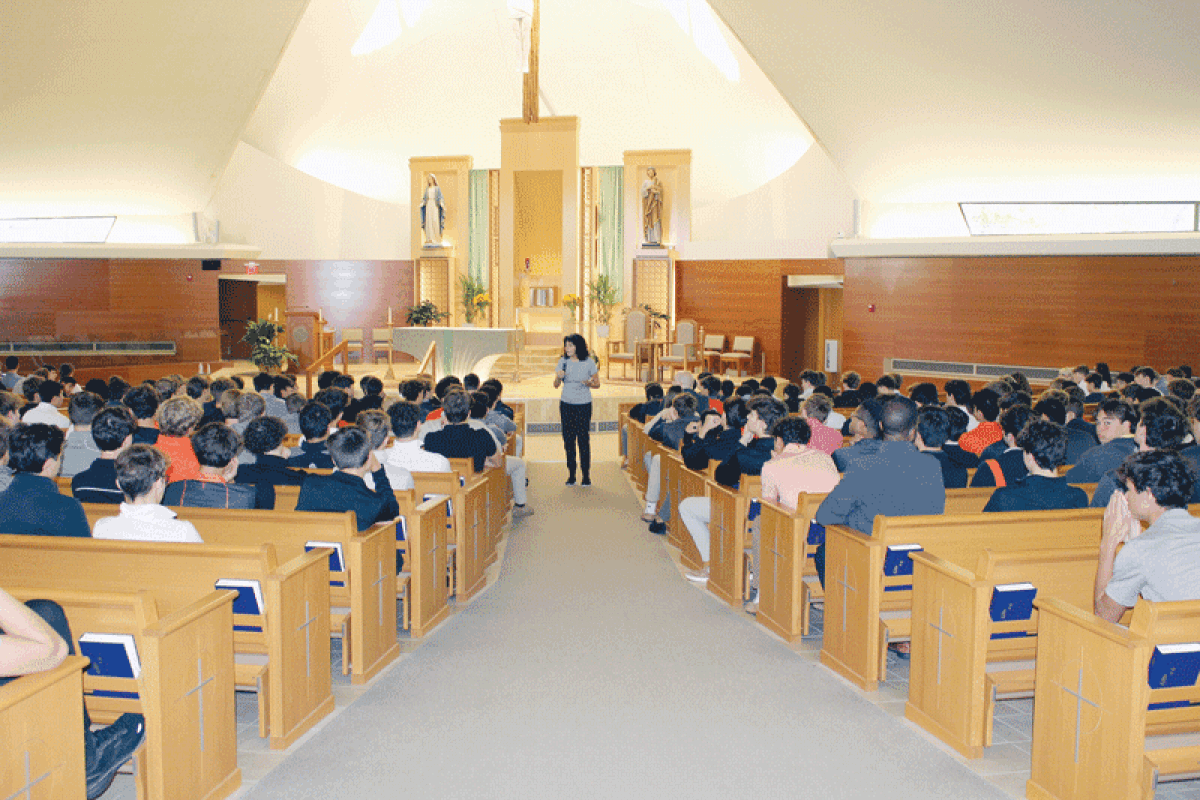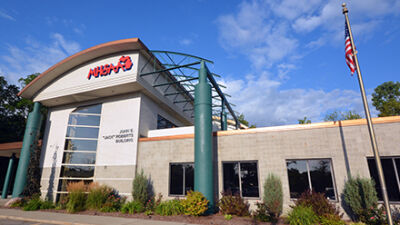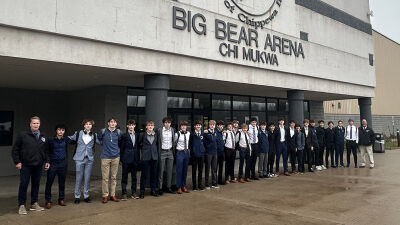METRO DETROIT — When parents find out that their kid is being bullied, or that their kid is the bully, it can be a shock.
According to the Centers for Disease Control and Prevention, about one in five high schoolers have reported being bullied at school.
There are signs victims may show that parents should look out for, as well as strategies to help rebuild their self-confidence.
Jodee Blanco is a survivor-turned activist and the author of the New York Times bestseller “Please stop laughing at me: One woman’s inspirational story.” She recently spoke at Brother Rice High School, and while she was there, she observed the challenging yet nurturing culture that the school has achieved.
“It was one of the most powerful experiences at a school I’ve ever had,” she said.
Blanco shared that while bullying has not changed since she was in school, bullies now have new ways to carry out this behavior against their victims. With social media, kids no longer have to spread rumors in person. Now, they can do the damage hiding behind a screen.
“The weaponry to perpetrate bullying cuts a wider and deeper swath, but the impulse of what creates that kind of cruelty remains the same,” Blanco said.
Parenting a victim
Lisa Khoury is a school psychologist in the Grosse Pointe Public School System and is in private practice at Associated Psychologists in St. Clair Shores.
Khoury said that sometimes the first sign parents may notice in their child who is being bullied is social isolation. Changes in friends or social activity may be due to a child wanting to avoid the bullies, or it could be because they were not invited.
Blanco said that it is important to understand that sometimes the more subtle kind of bullying can be the most hurtful.
“Bullying isn’t just the mean things we do. It’s all the kinds of things we never do,” Blanco said.
She explains that bullies can attack in more ways than physical.
“The moment a child starts asking themselves what’s wrong with me is the moment that potential long-term damage from bullying has taken root,” Blanco said. “If you are a parent, you have to be aware that, if your child is lonely or feeling isolated or left out, the potential damage of that can be severe.”
Blanco said the first thing a parent should do to help their child is help them find a brand-new social outlet separate from school. She suggests looking into programs offered by park districts, museums, camps and libraries.
“While you want to work with the school institutionally on the bullying itself, the first thing you need is to perform triage on your lonely child and give them hope that if they are not fitting in at school, there are still other places where they will fit in and can make friends,” Blanco said.
Khoury said a parent should sit down with their child and talk to them about what is happening. She suggested parents ask their child how they think they can solve this problem, helping them along the way.
“The concept behind that is to empower the students to take charge of the situation,” Khoury said.
Blanco added that working in partnership with the school is essential. She said one of the most common mistakes people tend to make is focusing solely on punishing the bully.
Punishing the bully
When parents find out their child is a bully, Khoury said, they should treat it like a “teachable moment” and practice “restorative justice approaches.” For example, she suggests asking a child who is a bully to write an apology letter to the student they are bullying.
“The most effective way to diminish bullying in a school is to treat the bullies with compassion and engage in restorative practices when it comes to discipline and to help their target to become more socially confident and also to deepen their ability to forgive,” Blanco said.
Blanco said that parents should engage in compassionate forms of discipline if they find out their child is the bully. For example, a bully may benefit from doing random acts of kindness for a different person each day and recording how that person responded to that act and how that response made them feel.
“If you have a kid who’s mean at school, your child is crying out for help,” Blanco said. “Do everything you can to find out what’s causing this hunger and what is causing this cry for help, and work backward from there.”
For more information on Blanco’s story and insights, visit her website at jodeeblanco.com.
 Publication select ▼
Publication select ▼





























